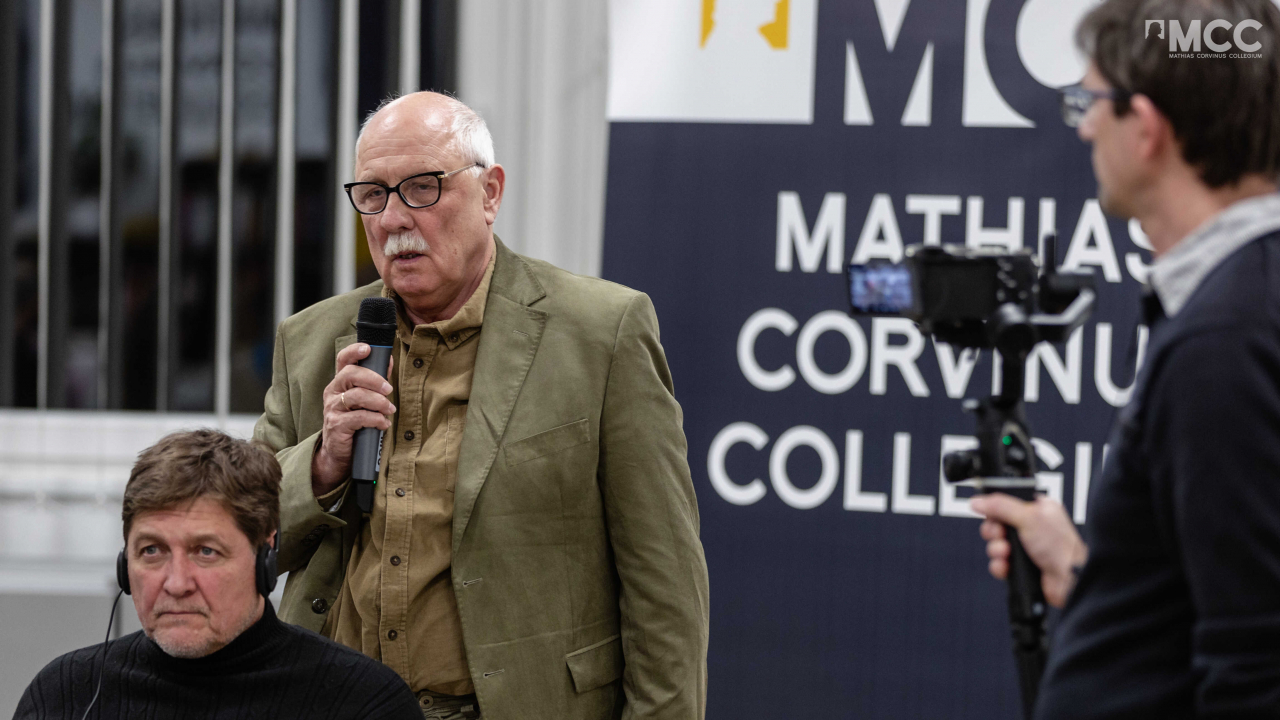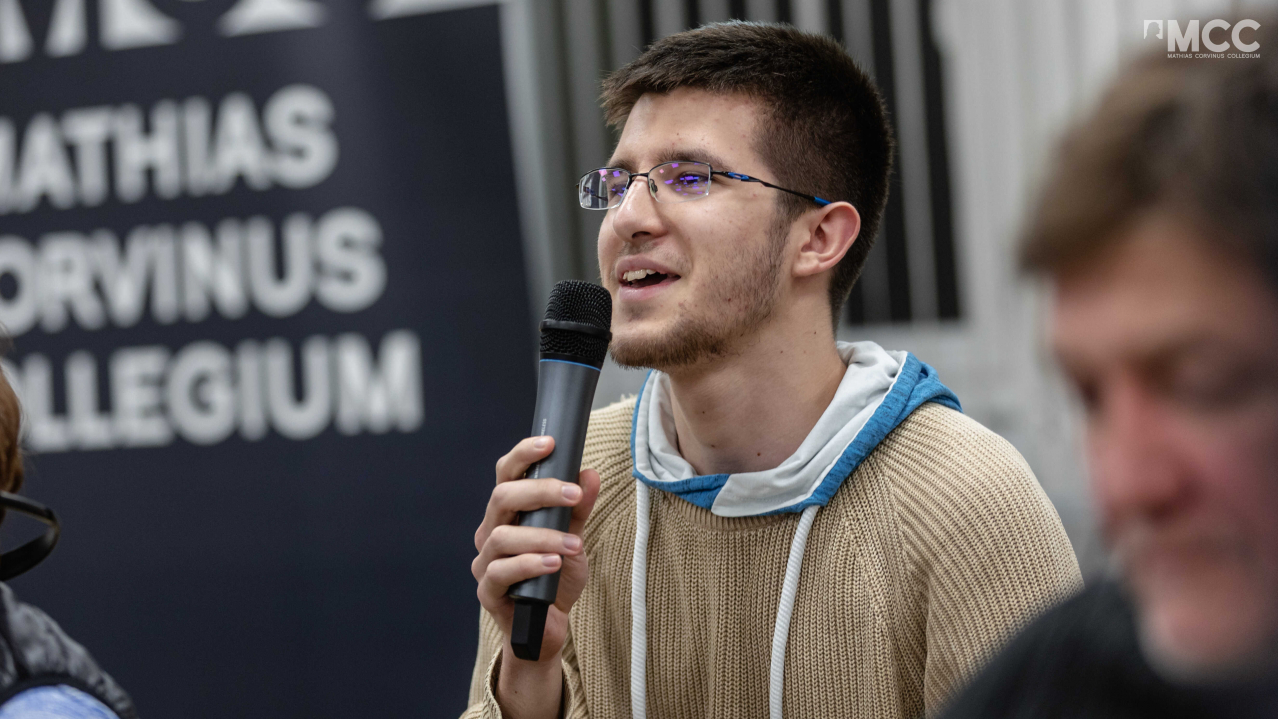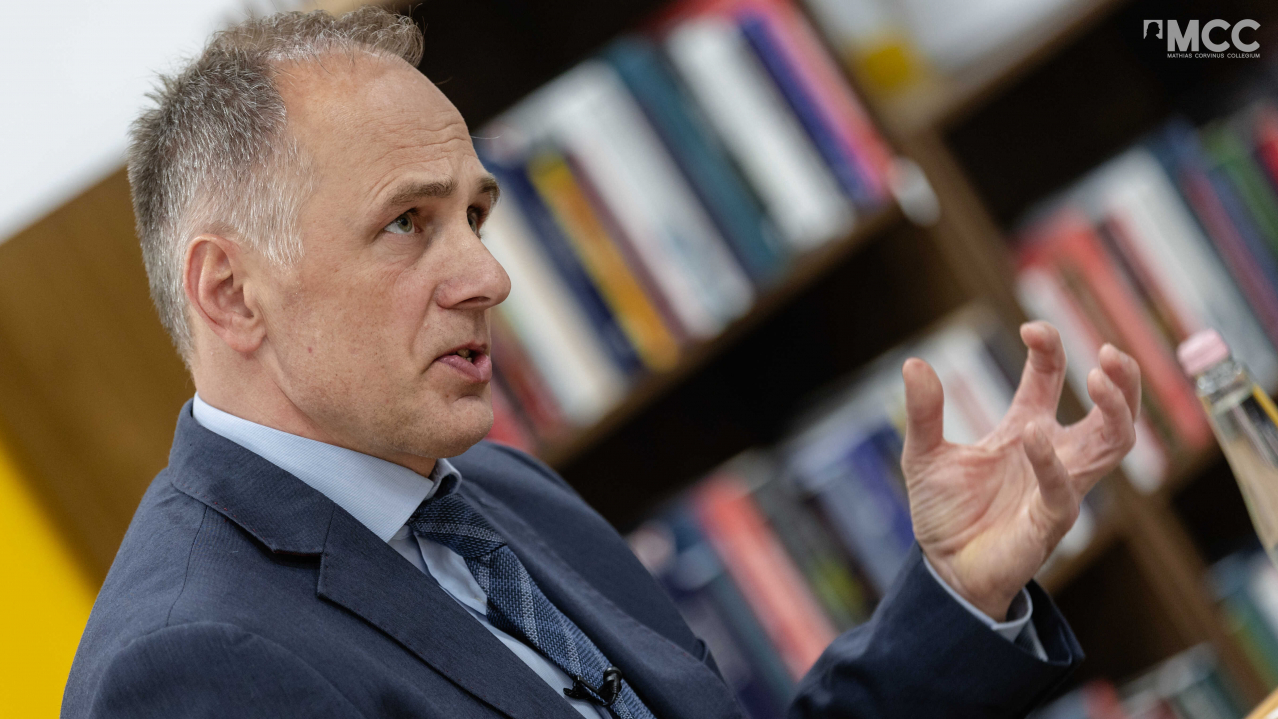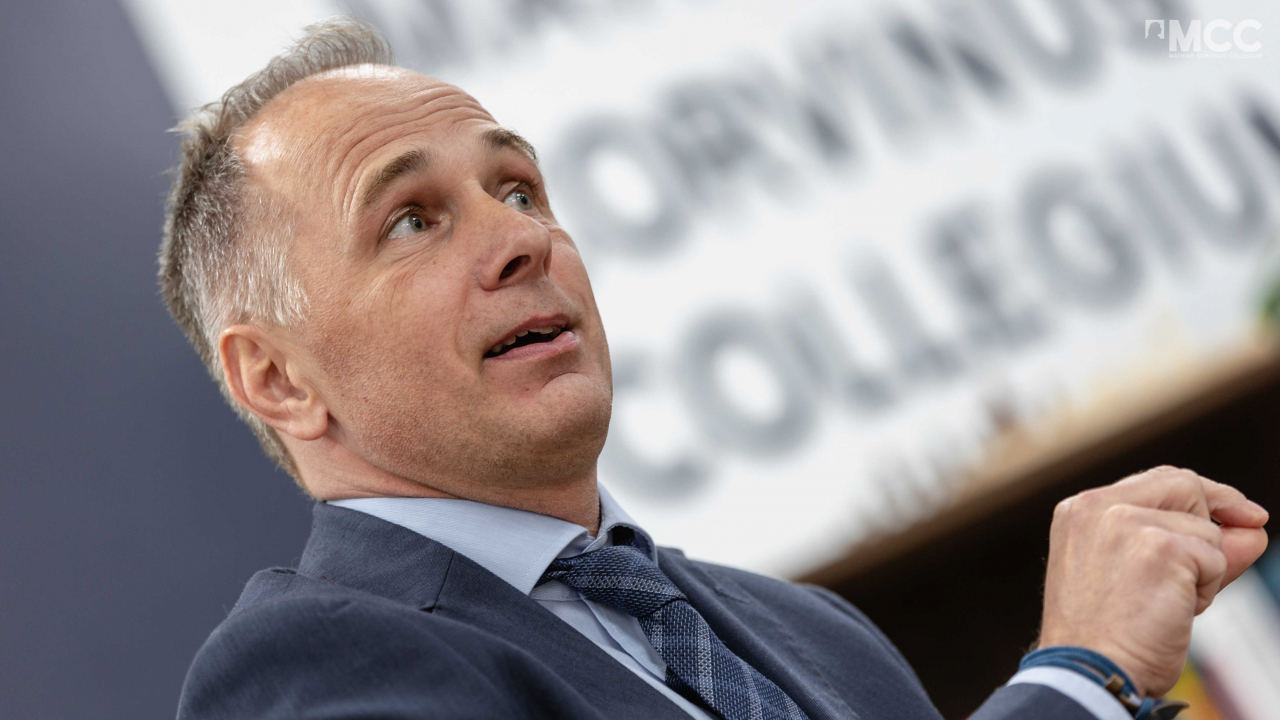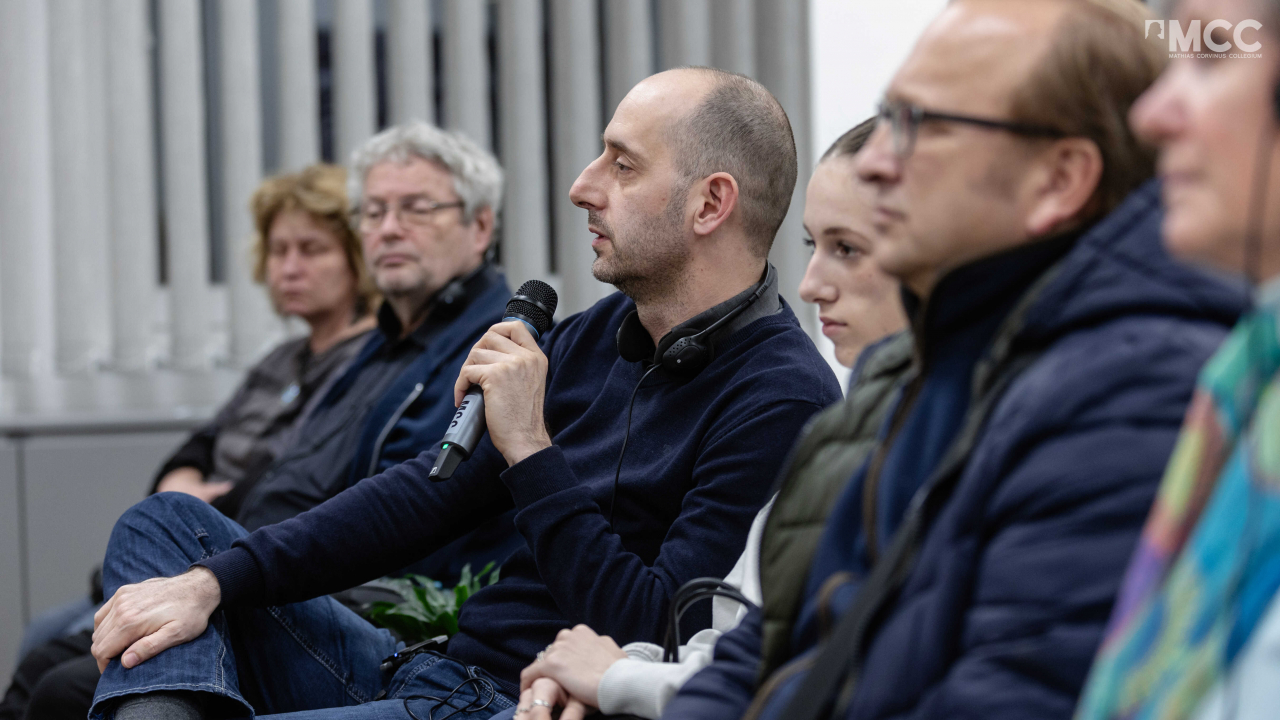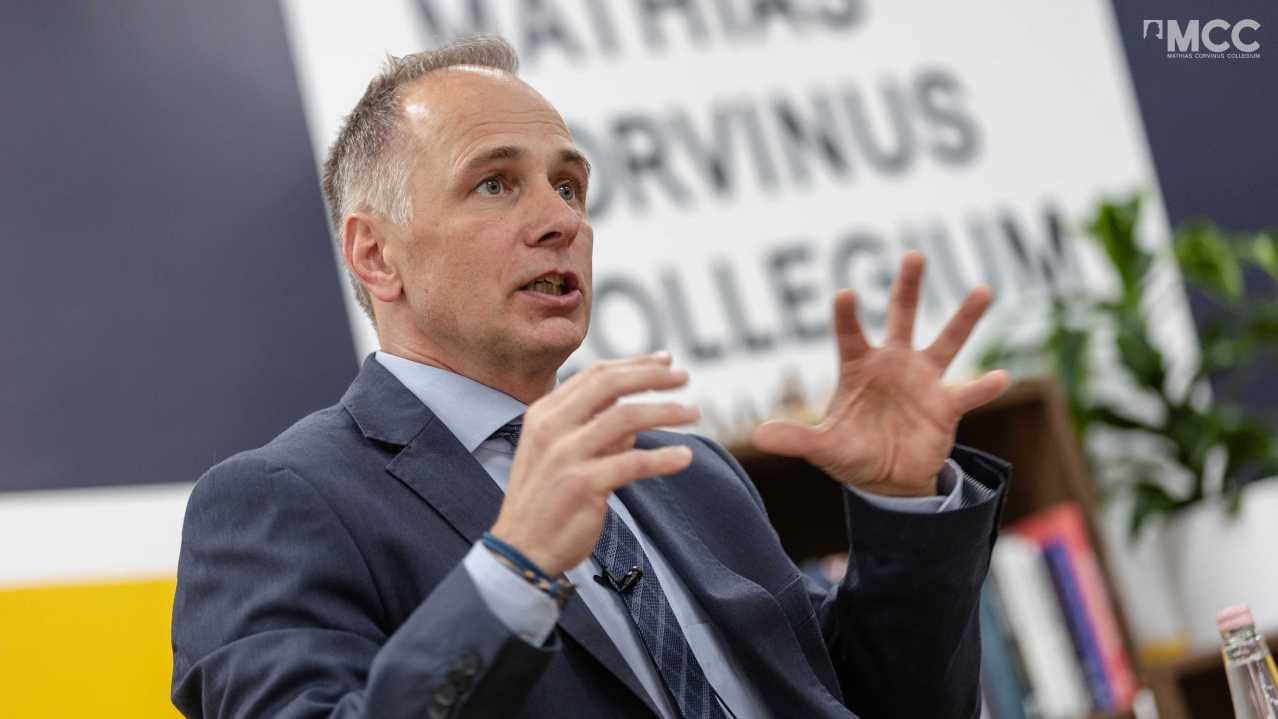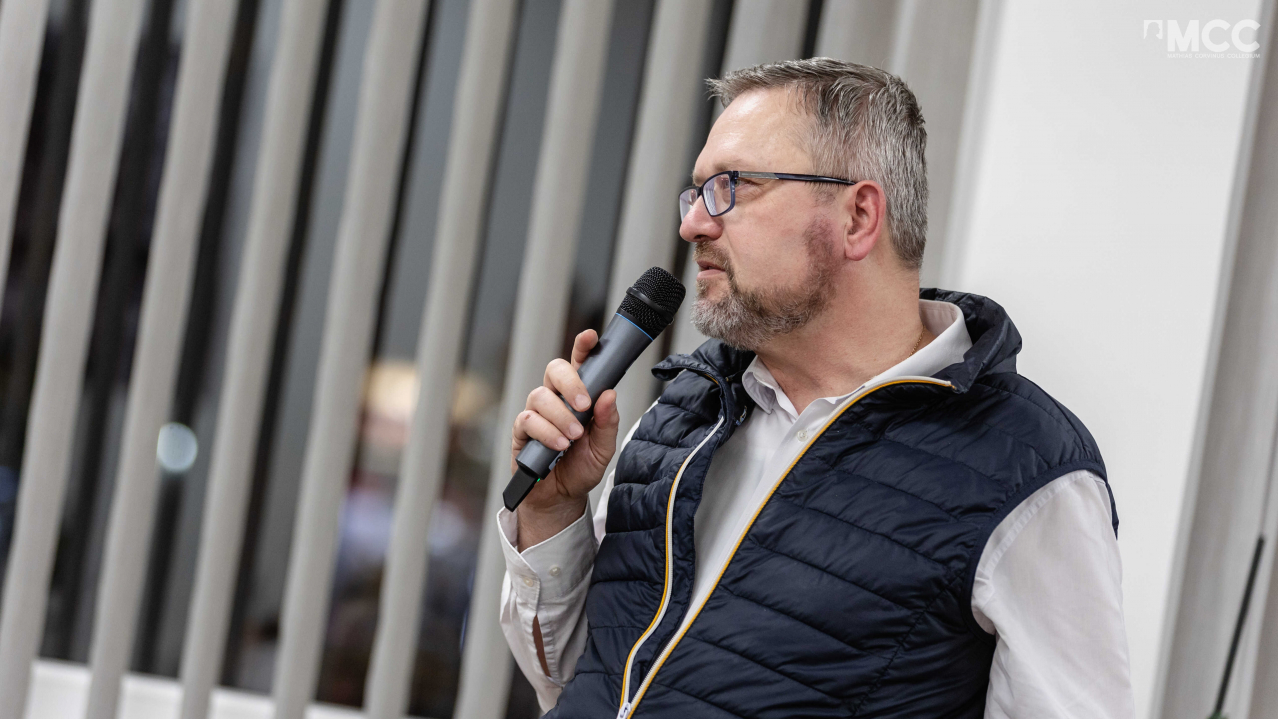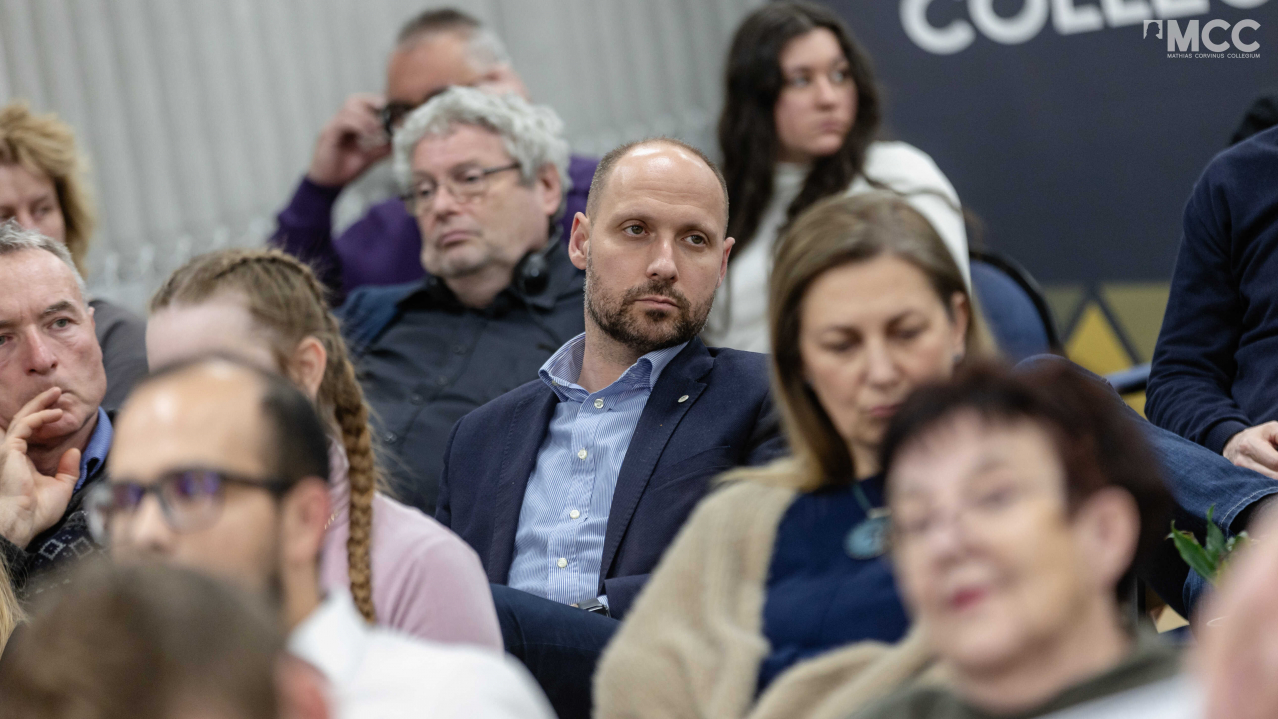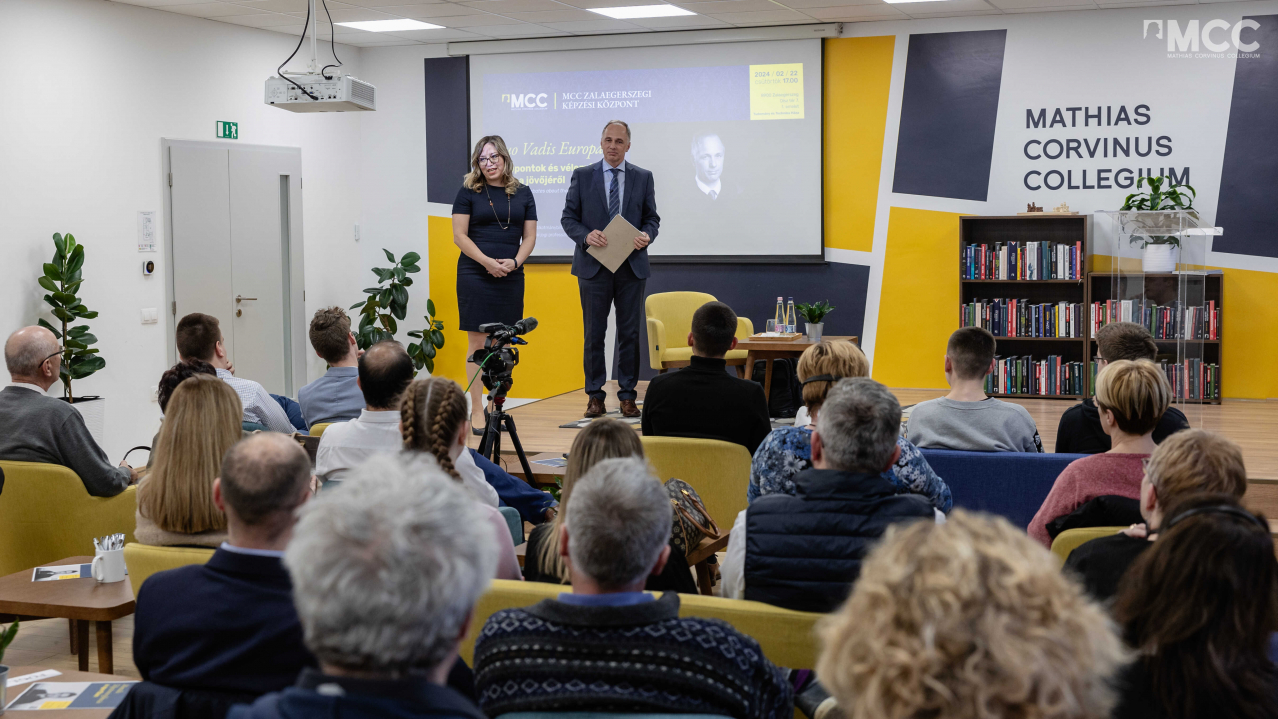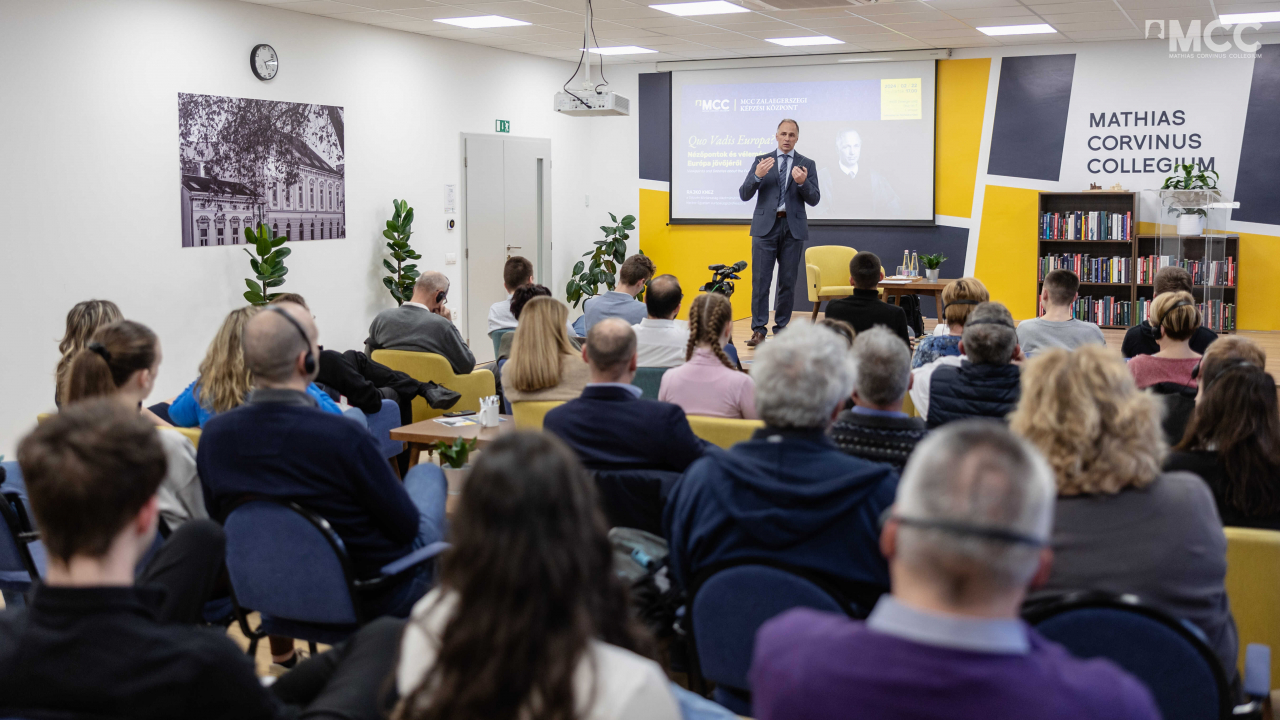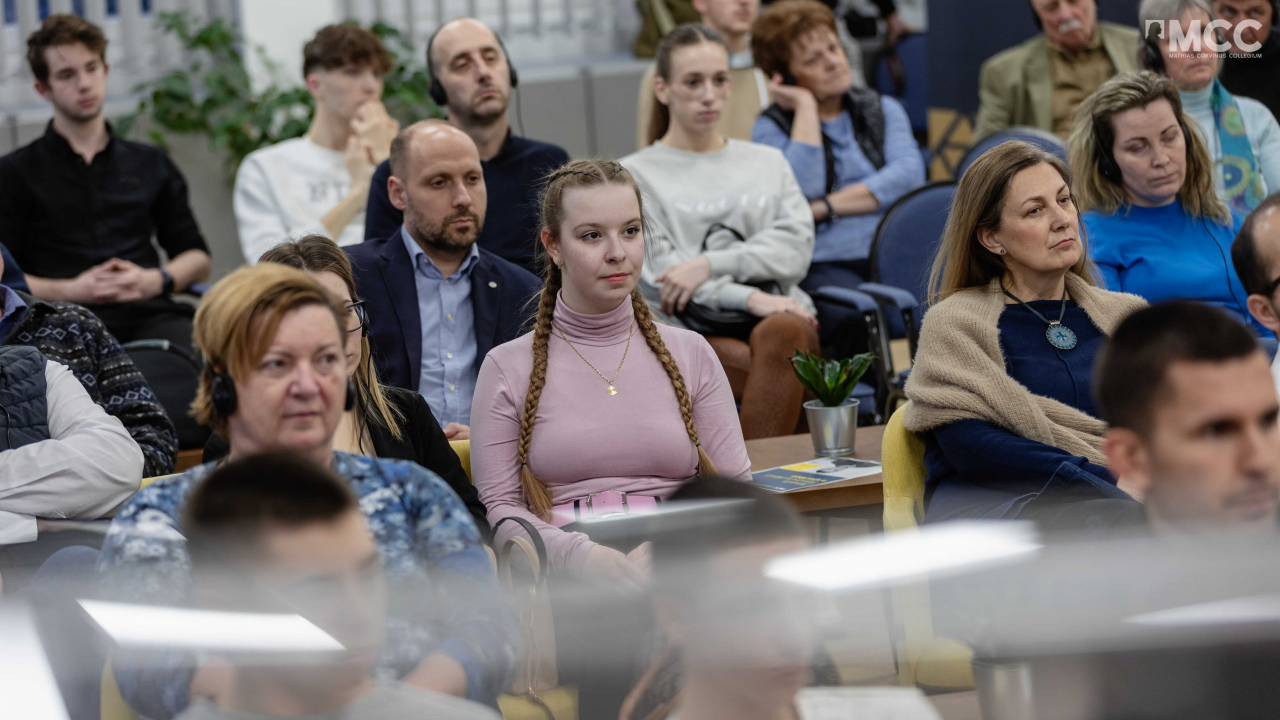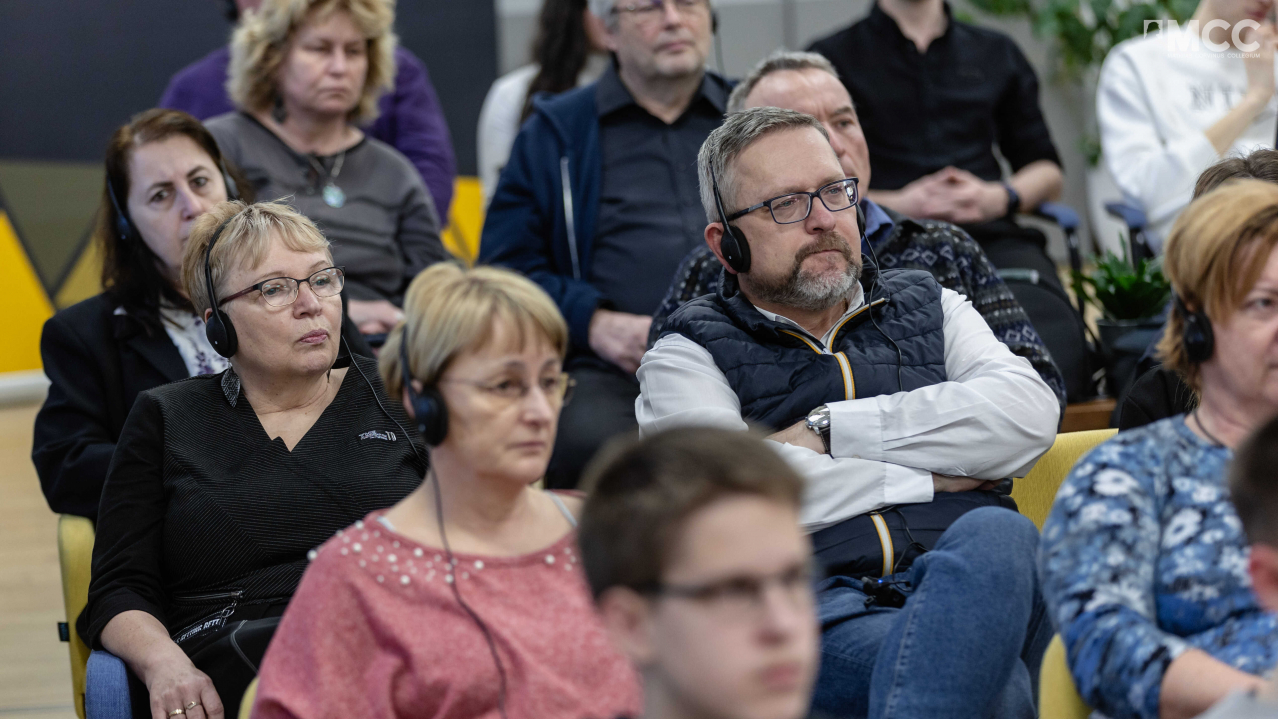Reading time: 2 minutes
“There is no such continent in the World with so many different nations, cultures and languages. Therefore, the larger the European Union becomes, the more it should respect these differences. National sovereignty is an essential part of the European cooperation and should not be sacrificed for the sake of integrationist aspirations" – Rajko Knez, Professor of Law emphasized in presentation at the MCC Centre in Zalaegerszeg.
On the eve of the conference "Reclaiming Our European Future" organized by the MCC Center for International Law, Rajko Knez, professor of law at the University of Maribor and Member of the Slovenian Constitutional Court, visited the MCC Centre in Zalaegerszeg to give a presentation on the challenges ahead of the European cooperation. The professor recalled the early period of European integration, which was defined by the beginning of the Cold War. The Coal and Steel Community of the early 1950s and the subsequent economic and atomic energy communities offered a path to economic integration. This market-oriented cooperation strengthened Western Europe during the Cold War and continues to be an important driving and cohesive force for the European integration.
The professor also pointed out that the late 1980s and early 1990s marked an important turning point in the history of the integration. In this period, the Member States decided to give political dimensions to the integration along the lines of common values. At the same time, the political aspects of the integration process reveled differences and conflicts of interest. Europe is the most diverse continent around the world, with so many different nations, cultures and languages that are living together. The larger the European Union becomes, the more it should respect these differences. At the same time, the guarantees, and institutional mechanisms that would be able to reconcile the various interests are currently deficient, while centralization is gaining ground.
Rajko Knez pointed out that there is currently no such widely accepted vision than the rebuilding after the devastation of the war, the creation of a market integration or the abolishment of borders. The European Union needs a new vision that respects the diversity of Member States and strikes a balance between the EU and national levels. National sovereignty is an essential part of the European cooperation and should not be sacrificed for the sake of integrationist aspirations.
